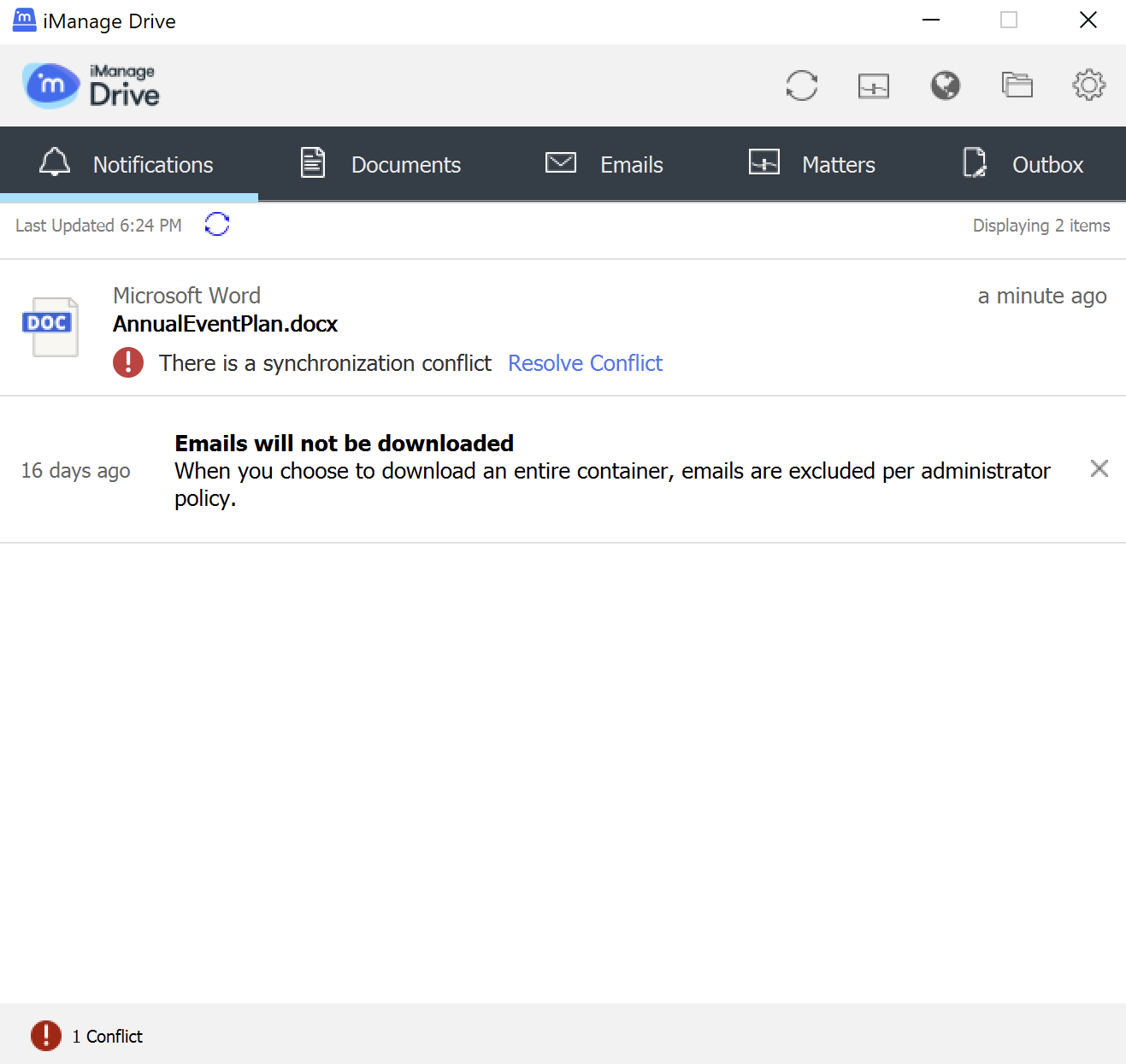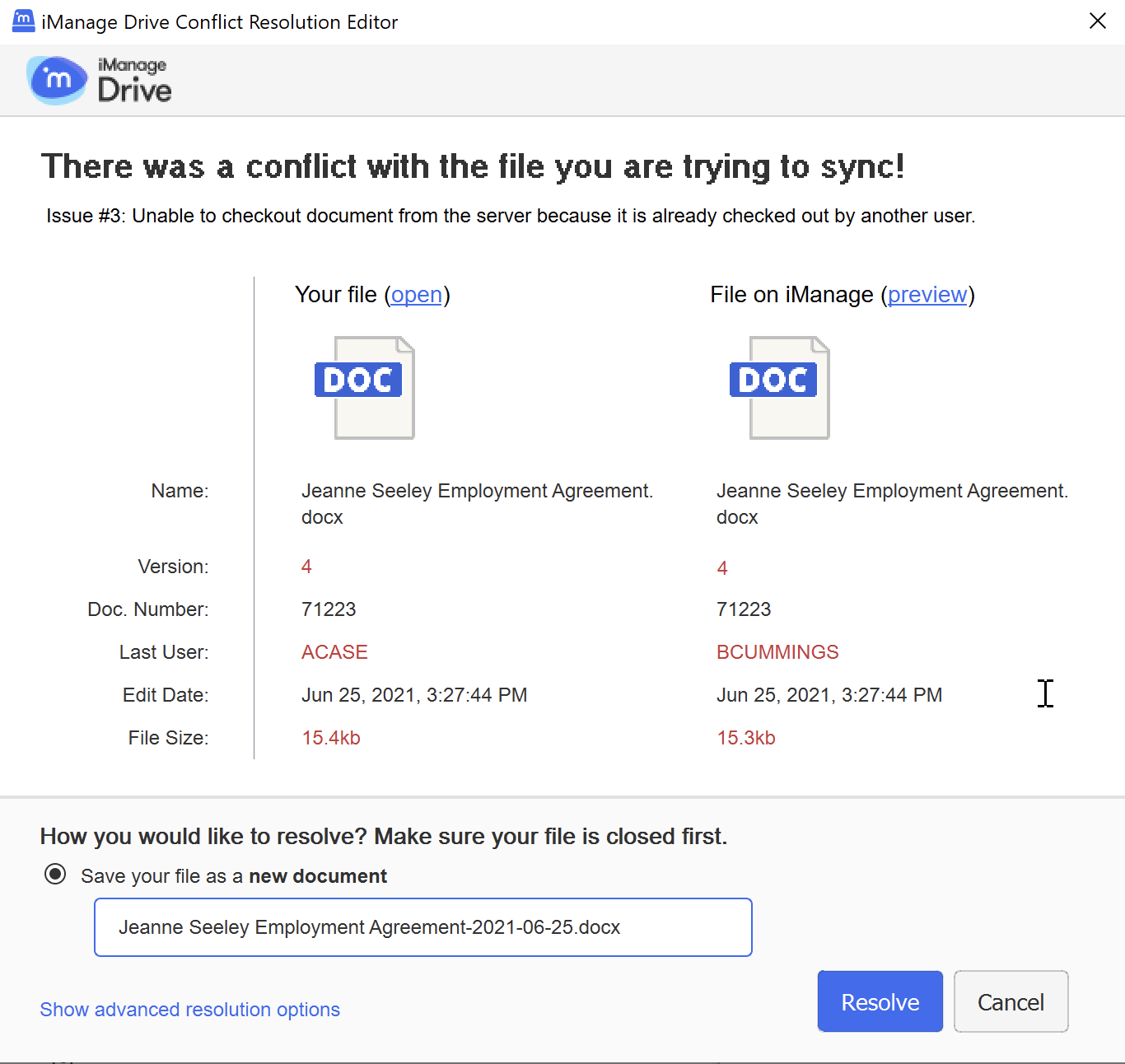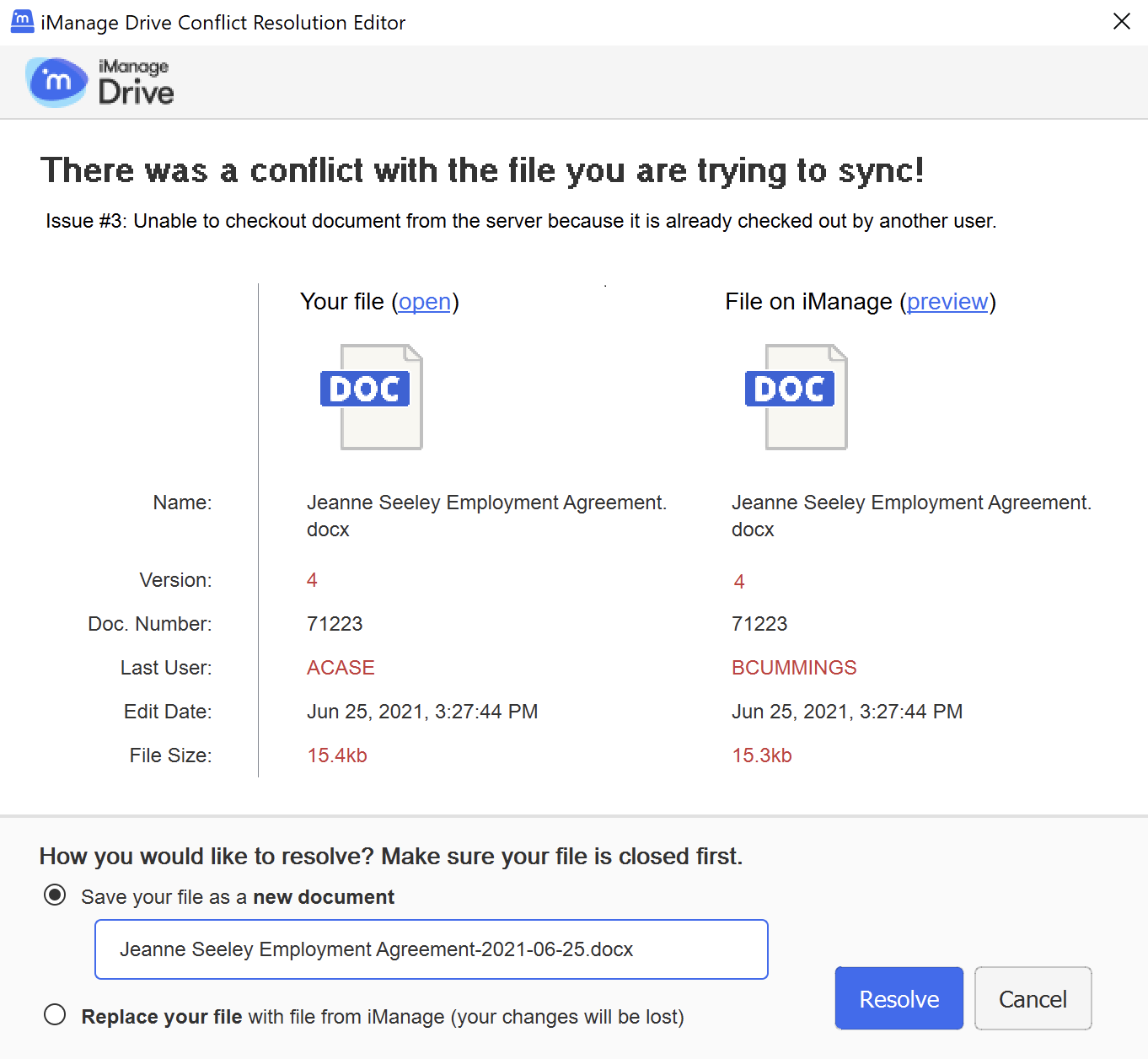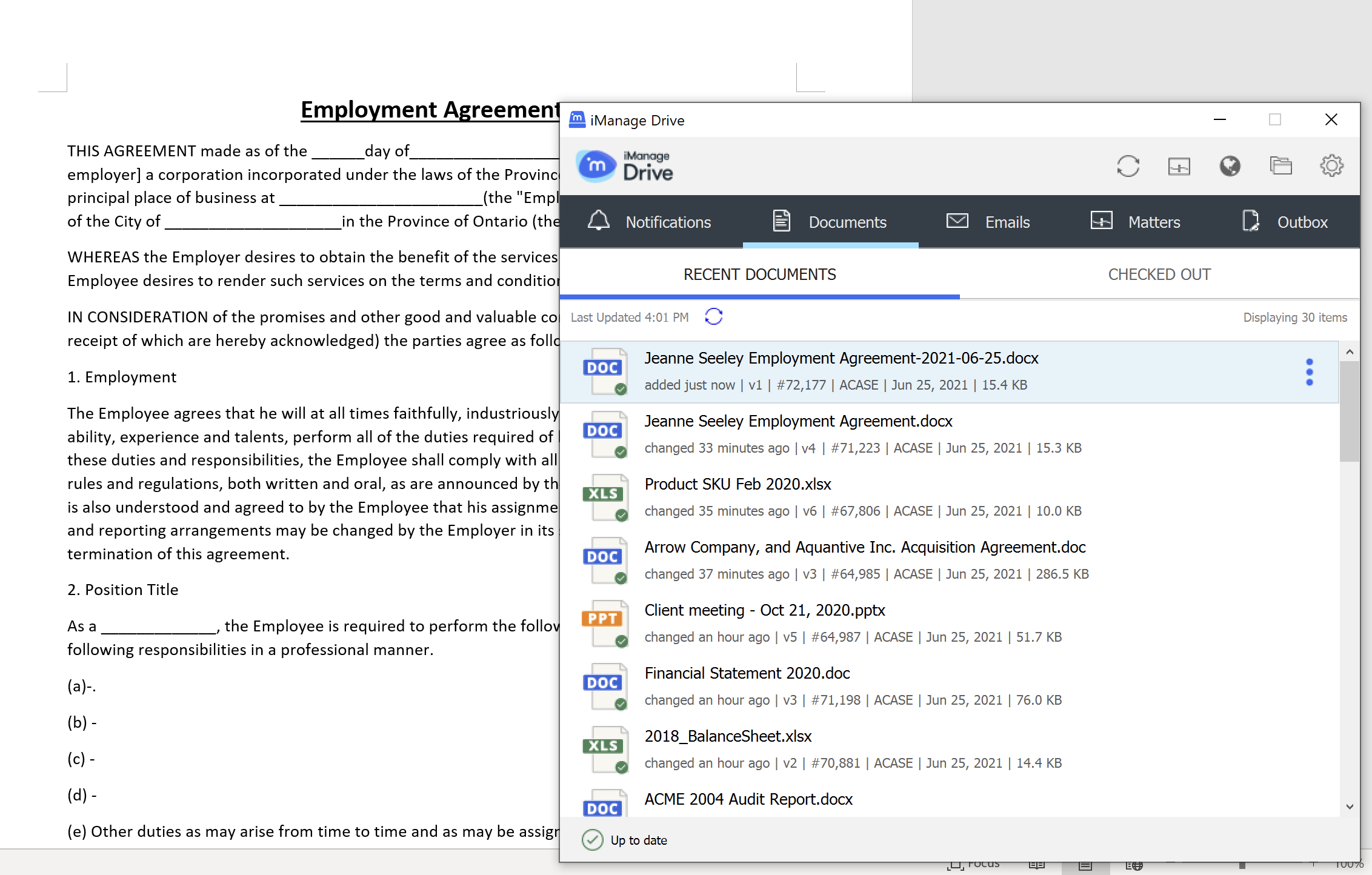Conflict resolution
Conflicts are situations where iManage Drive requires inputs from the user about how to deal with certain sync-related issues. The application icon in the Windows task bar changes to![]() to indicate that there is a conflict. Some of the possible scenarios where conflicts can occur are:
to indicate that there is a conflict. Some of the possible scenarios where conflicts can occur are:
When users save or create empty files in their drive.
Two users simultaneously work on the same file and the version in iManage Work is newer than the one in iManage Drive.
The file cannot be checked out for edits from iManage Drive as it is already checked out by another user in iManage Work.
Users save a file that does not have a file extension to their mapped drive or remove the extension for a file in the drive.
iManage Drive marks the file with a lock icon (![]() or
or ![]() ) if it is checked out by you or other users in your organization. When you open a document with a lock icon (checked out by another user), it opens as a Read Only document. The main benefit of this feature is to reduce any conflict that might arise during collaboration.
) if it is checked out by you or other users in your organization. When you open a document with a lock icon (checked out by another user), it opens as a Read Only document. The main benefit of this feature is to reduce any conflict that might arise during collaboration.
The ![]() icon is displayed in your mapped folder for files that have a conflict. You can resolve file conflicts using Notifications > Resolve Conflict. The iManage Drive panel displays the same icon in the status bar (lower-left corner) and also on the Notifications tab.
icon is displayed in your mapped folder for files that have a conflict. You can resolve file conflicts using Notifications > Resolve Conflict. The iManage Drive panel displays the same icon in the status bar (lower-left corner) and also on the Notifications tab.
Figure: Panel displays file conflict

Two users simultaneously work on a file
Let us look at an example where two users simultaneously work on the same file: one in the drive and the other in iManage Work web.
You are signed in to iManage Work through iManage Drive as Andrew Case (username: ACASE). While you are working on the file Jeanne Seeley Employment Agreement that you opened from your local drive, Barbara Cummings (BCUMMINGS) signs in to iManage Work web and edits and saves the same file. When you save changes you made to the file in your local drive, iManage Drive tries to check out the file to sync your changes and the file is then displayed in the Documents tab in iManage Drive with the ![]() icon. The iManage Drive icon turns red
icon. The iManage Drive icon turns red![]() to indicate that there is a conflict.
to indicate that there is a conflict.
Select the file to open the iManage Drive Conflict Resolution Editor that provides the details of the conflict and options to resolve it.
Figure: iManage Drive Conflict Resolution Editor

The Save your file as a new document or the Save your file as a new version option is selected by default based on the option you have selected for Preferences > Check-in options. If required, edit the default name for the new document. (Optional) For more options that are available to resolve the conflict, select Show advanced resolution options.
Figure: Advanced options

Select Resolve. The file is saved as a new document and the iManage Drive icon in the Windows task bar turns blue to indicate that the conflict is resolved.
Figure: Conflict resolved
